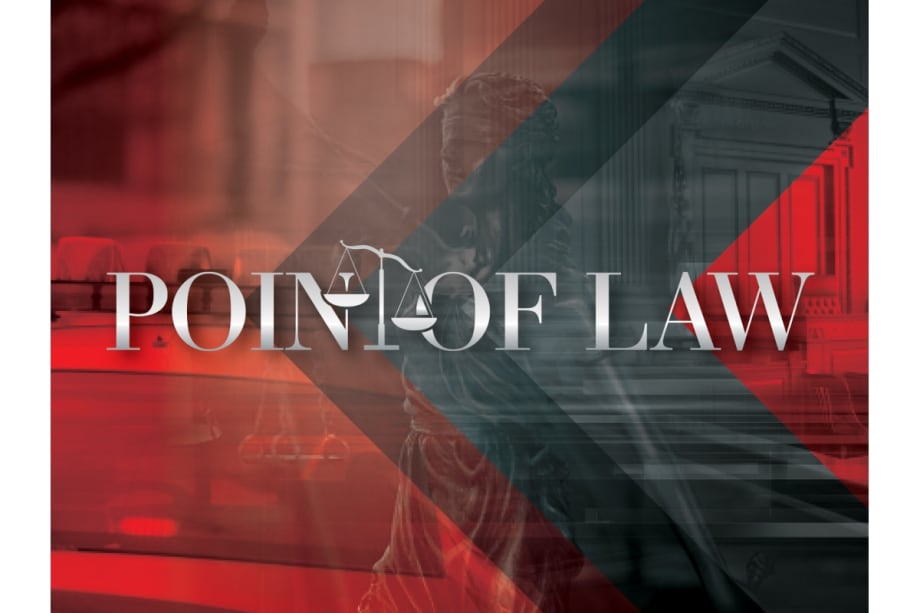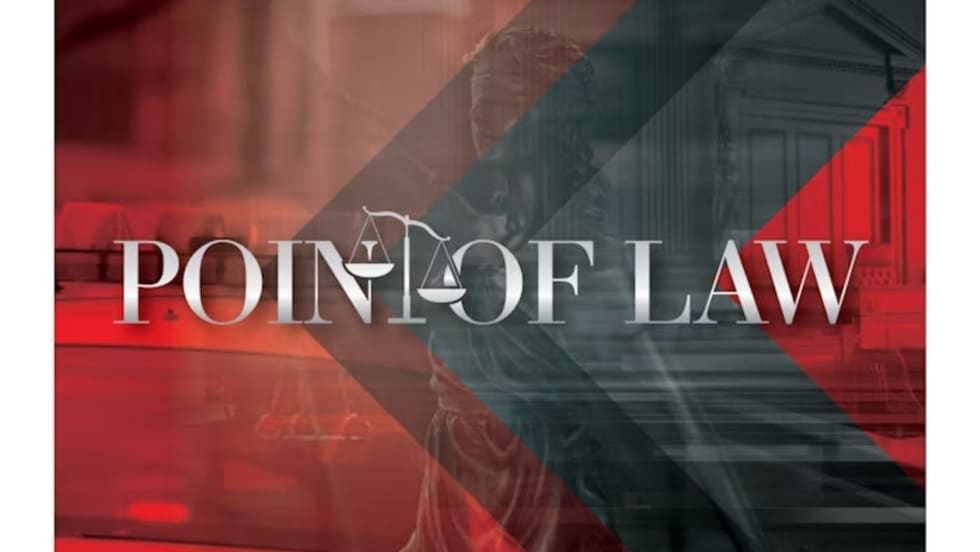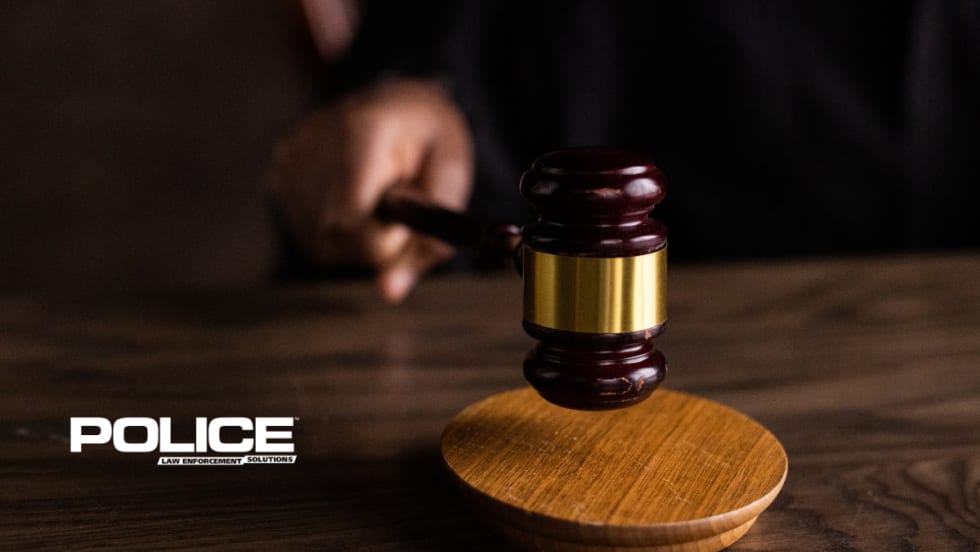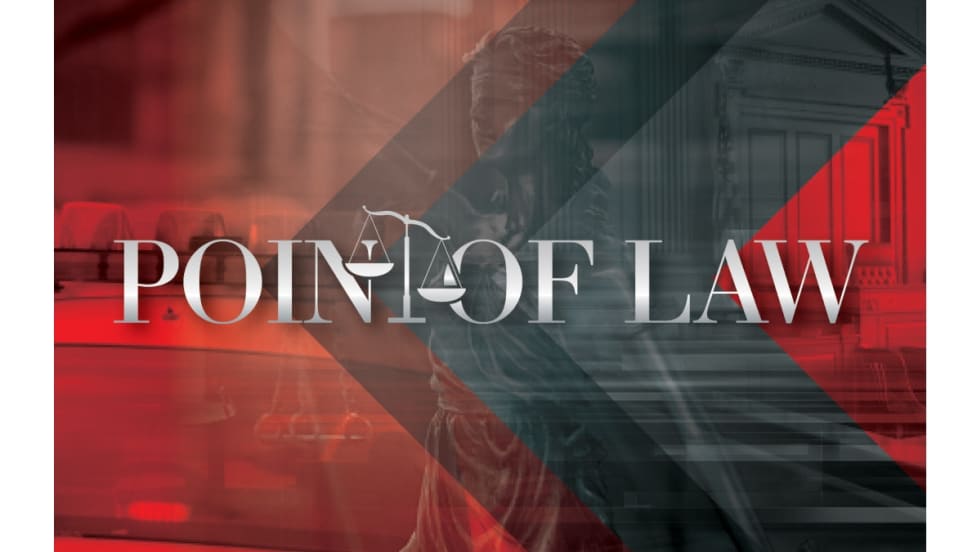Every law enforcement officer needs to know what the courts have said about the public’s right to video you performing your duties.
Recently, groups of individuals claiming to be “First Amendment auditors,” have been challenging police and gaining media exposure by filming the inside of various public spaces. As a result of this phenomenon, many agencies are evaluating how to respond to these so-called “auditors.” Many of these encounters do not escalate, however, there are some encounters that have become challenging for law enforcement.
In this two-part series, I will break down several court cases that apply to First Amendment “auditors,” the areas of the law that protect officers, and what law enforcement can do moving forward.
To begin let’s define First Amendment audits and begin discussing First Amendment implications such as the right to film in public spaces and reasonable restrictions on the right to film.
“AUDITS”
A First Amendment audit is a form of activism where an individual seeks to exercise their First Amendment rights. The audits can take place in public spaces such as streets, libraries, post offices, beaches, town halls, police and sheriffs’ stations, and other locations. They are about the auditors’ right to openly film law enforcement personnel and other public officials as they perform their
duties.
While citizens have recorded police officers performing their duties in public for years, officers should be prepared to deal with two con-temporary issues related to recording. First, officers and even non-sworn police personnel should be prepared to deal with First Amendment auditors who may visit their station, town hall, or other town and county facilities. Second, officers should be prepared to deal with citizens who record them while performing their duties in the field.
In both instances, the recording is not usually passive, meaning the auditor often takes an active role in engaging with the public safety personnel, challenging them on applicable laws, and in some cases, attempting to escalate the situation in order to garner support from their audience or followers.
FIRST AMENDMENT IMPLICATIONS
The First Amendment of the U.S. Constitution provides that Congress shall make no law respecting an establishment of religion, or prohibiting the free exercise thereof; or abridging the freedom of speech, or of the press; or the right of the people peaceably to assemble, and to petition the Government for a redress of grievances. This further complicates how to handle these “auditors” because they may not actually break a law.
Many of the U.S. Circuit Courts of Appeal have ruled, and the U.S. Department of Justice has taken the position, that citizens have a First Amendment right to film police performing their duties in public.
The case of Glik v. Cunniffe is one of the more influential, and oft-cited cases in this line of jurisprudence. In this case, Boston police officers arrested the defendant Simon Glik when he recorded an incident with his smartphone where officers were taking another individual into custody on the Boston Common. Glik was charged with violating the wiretap statute, disturbing the peace, and aiding in the escape of a prison-er. All the charges were subsequently dismissed for lack of probable cause. Glik then filed suit under 42 U.S.C. § 1983 alleging a violation of his First Amendment rights.
The case settled, but it was determined that if the police are aware that they are being recorded, it is not unlawful for a citizen to film law enforcement officers in the discharge of their duties in a public space. The First Circuit Court of Appeals ruled that “a citizen’s right to film government officials, including law enforcement officers, in the discharge of their duties in a public space is a basic, vital, and well-established liberty safeguarded by the First Amendment.”
The Court further advised that “such peaceful recording of an arrest in a public space that does not interfere with the police officers’ performance of their duties is not reasonably subject to limitation.” As a result, the Court concluded “we see no basis in the law for a reasonable officer to conclude that such a conspicuous act of recording was ‘secret’ merely because the officer did not have actual knowledge of whether audio was being recorded.” Notably, the Court determined that this state of the law was well established at the time of the arrest, and there-fore, denied the officers’ claim for qualified immunity from Glik’s First Amendment claim.
Other courts across the country have determined that citizens have a First Amendment right to record law enforcement personnel performing their duties in in public.
Some courts have even taken this one step further, ruling that secret audio recording of law enforcement officials performing their duties in public is protected by the First Amendment, subject only to reasonable time, place, and manner restrictions.
RESTRICTIONS ON FILMING
Our next case to review in terms of the right to film is Gericke v. Begin. On March 24, 2010, at approximately 11:30 p.m. in Weare, NH, the defendant, Carla Gericke, was following Tyler Hanslin in her car. Sergeant Kelley of the Weare Police Department pulled his cruiser behind Gericke’s vehicle and activated his emergency lights. Both Gericke and Hanslin pulled over and Sergeant Kelley parked his cruiser between the two. Kelley advised Gericke that she was not the one being detained and told her to move her car. Gericke moved her car to the adjacent Weare Middle School parking lot to wait for Hanslin.
Kelley approached Hanslin’s vehicle and Hanslin advised Kelley that he was carrying a firearm and was properly licensed. After parking her car in the lot, Gericke got out and approached the fence that separated the lot from the road. From there, she attempted to audio and video record the scene from approximately 30 feet away and announced that she was doing this. (It was later determined that despite her best efforts, Gericke was not actually able to record, but still pointed the camera as though she were doing so.) Gericke thereafter put the camera away and sat in her vehicle.
Officer Montplaisir arrived on scene and demanded to see where the camera was. Gericke refused to tell him. The officer requested her li-cense and registration. Again, Gericke refused. Gericke was subsequently arrested, her camera seized, and she was charged with disobeying a police officer, obstructing a government official, and unlawful interception of oral communications, the New Hampshire equivalent of a wire-tap charge under Massachusetts law. All charges were dismissed. Gericke filed suit under 42 U.S.C. § 1983 alleging a violation of her First Amendment rights.
Like Glik, the First Circuit ruled that Gericke, and any citizen for that matter, has a clearly established presumptive right to videotape police activity in public. Most notably, the First Circuit provided that “reasonable restrictions on the exercise of the right to film may be imposed when the circumstances justify them.” The Court explained that “such a restriction could take the form of a reasonable, contemporaneous order from a police officer, or a preexisting statute, ordinance, regulation, or other published restriction with a legitimate governmental purpose.” This language from the ruling is particularly important and should provide guidance to officers as to the appropriateness of such restrictions:
The circumstances of some traffic stops, particularly when the detained individual is armed, might justify a safety measure—for example, a command that bystanders disperse—that would incidentally impact an individual’s exercise of the First Amendment right to film. Such an order, even when directed at a person who is filming, may be appropriate for legitimate safety reasons. However, a police order that is specifically directed at the First Amendment right to film police performing their duties in public may be constitutionally imposed only if the officer can reasonably conclude that the filming itself is interfering, or is about to interfere, with their duties.
Likewise, other courts across the country have determined that there may be restrictions placed upon a citizen’s right to record under certain circumstances, such as in situations during traffic stops, sobriety checkpoints, and at times on public properties.
TAKEAWAYS
The major points from this article are the following:
1. A First Amendment audit is a form of activism where an individual seeks to exercise their First Amendment rights. The audits can take place in public spaces such as streets, libraries, post offices, beaches, town halls, police and sheriffs’ stations, and others. Law enforcement should be prepared to deal with First Amendment auditors and they constitutionally have a right to film law enforcement at certain times.
2. Many of the U.S. Circuit Courts of Appeal as well as the U.S. Department of Justice have ruled that citizens have the First Amendment right to film police performing their duties in public (such as in Glik).
3. There are restrictions that outweigh a citizen’s right to film such as public safety and when statutes and other laws outweigh First Amendment Rights (such as in Gericke).
Next month, I’ll discuss strategies that law enforcement can use when encountering First Amendment auditors.
Eric Daigle is founder of Daigle Law Group, LLC, a firm that specializes in law enforcement operations. A former Connecticut State Police officer, Daigle focuses on civil rights actions, including police misconduct litigation. He is a legal advisor for police agencies across the country and member of the POLICE Advisory Board.
RELEVANT CASES
Glik v. Cunniffe, 655 F.3d 78 (1st Cir. 2011)
Gericke v. Begin, 753 F.3d 1 (1st Cir. 2014)
ACLU v. Alvarez, 679 F.3d 583 (7th Cir. 2012)
Smith v. City of Cumming, 212 F.3d 1332 (11th Cir. 2000)
Fordyce v. City of Seattle, 55 F.3d 436 (9th Cir. 1995)
Turner v. Driver, No. 16-10312 (5th Cir. 2017)
Fields v. City of Philadelphia, 862 F.3d 353 (2017)
Sharp v. Baltimore City Police Department, No. 1:11-cv-02888-BEL
Kelly v. Borough of Carlisle
McCormick v. City of Lawrence, 130 Fed.Appx. 987, 988-89 (10th Cir. 2005)
Szymecki v. Houck, 353 Fed.Appx. 852, 853 (4th Cir. 2009)






